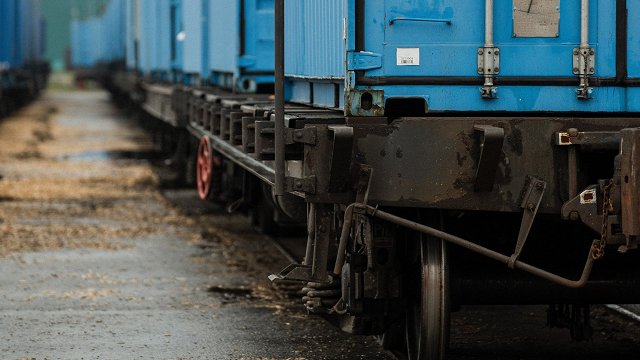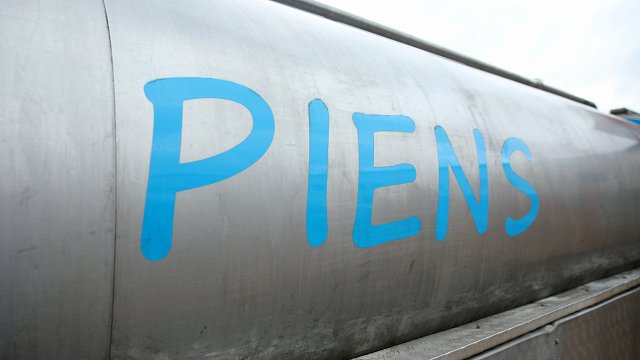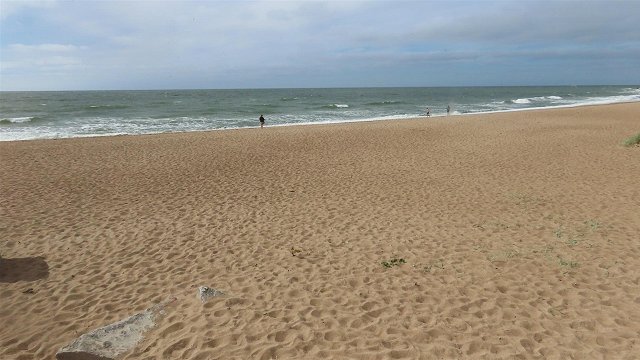
Economy


A strategic investor has shown interest in the shares of the Latvian national airline airBaltic ahead of a potential initial public offering (IPO), Transport Minister Kaspars Briškens (Progressives) said at a press conference after Tuesday's government meeting, without disclosing the name of the investor.

The Public Utilities Regulatory Commission (SPRK) has imposed a fine of EUR 10 025 on Tet Ltd for violation of end-user rights, SPRK said July 22.

Ministries and other central authorities, as well as independent bodies, have submitted requests for priority actions for 2025 for almost €1.3 billion, the Ministry of Finance said.

The land near Riga Airport, for which the Riga City Council decided to renew the ownership rights, could be partially transferred to the investor, while the land closest to the airport would be given to the airport, Rīga Mayor Vilnis Ķirsis (New Unity) told Latvian Television's "Morning Panorāma" in an interview on Monday, July 22.

Customers of Latvia's four largest banks were defrauded of €9.5 million in the first six months of this year, 86% more than in the first half of last year, Latvian Radio reported on July 21, referring to Finance Latvia Association's data.

Data published by the Central Statistical Bureau (CSB) July 19 show that in June 2024, compared to June 2023, level of producer prices in Latvian industry fell by 1.9 %.

Food products made in Russia and Belarus continue to be sold in small backyard shops and also in the more well-known chain stores. Data collected by the Food and Veterinary Service (FVS) show that food imports into Latvia from these countries are generally declining, but not uniformly across all commodity groups, Latvian Television reports July 19.

Latvian Foreign Minister Baiba Braže on July 17 made an unequivocal call for an end to economic links with aggressor states Russia and Belarus.

The Ministry of Economics intends to reform the Latvian Investment and Development Agency (LIAA), reviewing the institution's functions, so that it is primarily engaged in investment attraction and export promotion, Economics Minister Viktors Valainis (Greens and Farmers Union) said July 17 in an interview on the Latvian Television program "Morning Panorama".

Baltic electricity transmission system operators Elering (Estonia), AST (Latvia), and Litgrid (Lithuania) have officially notified Russia and Belarus of their withdrawal from the existing 'BRELL' system which links the electrical grids of the five states.

In the first half of this year, 67 companies imported food and feed from Russia to Latvia, while 36 companies imported food and feed from Belarus, the Food and Veterinary Service (PVD) told LETA July 16.

The situation in the Rēzekne municipality budget is worse than it initially looked, and suspicions that the revenues have been artificially increased are likely true, Minister of Smart Administration and Regional Development Inga Bērziņa (New Unity) said in an interview on the Latvian Television program "Morning Panorama" July 15.

Last year, food prices in the retail sector increased, and the Competition Council investigated the markets for eggs, fish, milk, meat, cereals and bread. The responsible Saeima committee has asked the government to prepare a concept for a modern digital food price basket comparison tool, Latvian Radio reported on July 15.

Grain harvest time usually starts around July 25 in Latvia but this year the winter barley has matured much earlier than in other years due to the high heat, Zemgale regional television reports.

The Baltic countries are fully ready to synchronize with the continental European electricity grid in February next year, as said in a release by the Latvian Climate and Energy Ministry (KEM) July 10.

Central Statistical Bureau (CSB) provisional data published July 10 show that in May 2024 Latvia had foreign trade turnover of EUR 3.29 billion – at current prices it was 8.4 % lower than a year ago.

In the first six months of 2024, Russian grain products went through Latvia in transit at higher volumes than in the first six months of 2023, LETA reports July 9.

The latest Central Statistical Bureau data published on July 8 show that in June 2024, compared to June 2023, the average level of consumer prices increased by 1.4 %.

While Estonia currently has 400 and Lithuania 1400 megawatts in wind energy, Latvia has only 140. Thus, Latvia is lagging in the Baltic context on wind energy and progress is very slow, said Toms Nāburgs, head of the Latvian Wind Energy Association, on Latvian Radio's "Zināmais nezināmajā" program on July 7.

House prices in Latvia rose by more than 2% in the first quarter of 2024, while house prices in the eurozone as a whole dipped slightly, according to Eurostat data published July 5.

Still empty and dirty - in the Old Town, ground-floor shop windows have looked abandoned in many places for at least a couple of years. Their windows and doors are decorated with brightly colored "For Rent" signs. To tackle the problem, Riga City Council is considering changes to its property tax policy, Latvian Radio reports July 5.

The State Forest Service (VMD) in May imposed a fine of €10,000 on a company that planned to import birch plywood from Turkey, which may have originated in Russia, the VMD said.

The Competition Council (KP) has adopted a decision to allow the environmental operator Latvijas zaļais punkts Ltd to take over the waste manager Eko osta Ltd, the council said on July 4.

There have been doubts about whether it is even possible to produce biomethane from chicken manure. But Bovo Gas in Iecava has been proving that it can for more than three months, pumping biomethane into Latvia's common natural gas network, Latvian Television reported on July 4.

Central Statistical Bureau provisional data published on July 2 show that in 2023 gross energy consumption in Latvia totalled 185 petajoules (PJ), which is 1 % less than in 2022.

Calendar adjusted data (at constant prices) compiled by the Central Statistical Bureau (CSB) and published June 28 show that, compared to May 2023, in May 2024 total retail trade turnover increased by 1.0 %.

State Treasury data published June 28 show that in the first five months of 2024, the consolidated total budget had a surplus of 253.2 million euros, and the balance improved by 308 million euros compared to five months a year ago.

Latvia's real estate sector is more significant than many people might think, according to Eurostat data published June 27.

Data published on June 21 by the Central Statistical Bureau show that in May 2024, compared to May 2023, the level of producer prices in the Latvian industry decreased by 3.3 %.

Recently published data on purchasing power parities (PPP) across the European Union (EU) show Latvia among the countries that consume less on a per capita basis, according to Eurostat.
Most important











Most read
 1.
1. 2.
2. 3.
3. 4.
4. 5.
5. 6.
6. 7.
7. 8.
8. 9.
9. 10.
10.
